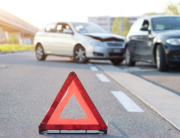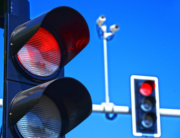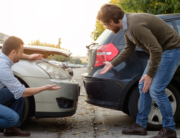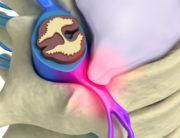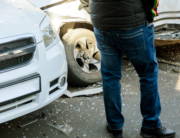A one-car accident caused purely by bad weather would likely leave the victim to seek compensation from their own insurance company. But if a driver was driving recklessly in severe weather and caused the accident, then that reckless driver could be liable for damages.
Talk to a lawyer if you suffered injuries in a car accident caused by bad weather and believe a reckless driver contributed. You could be entitled to compensation for your financial, physical, and emotional damages. Call 954-767-6500.
What is the Law in Florida on Driving in Bad Weather?
Florida Statute §316.183 prohibits people from driving “a vehicle on a highway at a speed greater than is reasonable and prudent under the circumstances and having regard to the actual and potential hazards then existing.” Florida drivers must “drive at an appropriately reduced speed” when “[a]ny special hazard exists … by reason of weather or highway conditions.”
The statute goes on to order drivers to slow their vehicles to whatever speed is necessary to keep the car under control and avoid all collisions. Driving too fast for the conditions, regardless of the posted speed limit, is unlawful speeding in Florida.
Florida law also prohibits drivers from following too closely in Florida Statute §316.0895. The law mandates that drivers be reasonable and prudent about following other vehicles and take into consideration the condition of the highway. If we have rainy weather, then the roads are slick. Drivers may be negligent for following too closely on wet roads at a distance that might be reasonable and prudent on dry roads. If following too closely contributed to the crash, the negligent driver may be liable.
What Weather Conditions Cause Crashes?
Rain causes more crashes, injuries, and fatalities than any other type of weather. (And here in Florida, we get a lot of rain.) Here is a breakdown of the percentage of weather-related wrecks, injuries, and fatalities in the United States by type of inclement weather, as reported by the Federal Highway Administration:
| Percentage of Weather-Related Wrecks by Type of Weather, U.S., 2005-14 | |||
| Type of Weather | Crashes | Injuries | Fatalities |
| Rain | 46 percent | 52 percent | 47 percent |
| Snow/Sleet | 17 percent | 13 percent | 13 percent |
| Icy Roads | 13 percent | 9 percent | 10 percent |
| Fog | 3 percent | 3 percent | 9 percent |
It is best to stay off the roads when there is adverse weather. But if you cannot avoid being on the road in bad weather conditions, slow down, stay back from other cars, do not ride alongside other cars, and remember to be patient.
How Do I Prove Another Driver Caused a Bad Weather Crash?
In inclement weather, drivers need to keep more distance between their car and other vehicles for three reasons:
- It takes longer to stop the vehicle on slick roads. Drivers who follow too closely might rear-end another vehicle.
- Staying further behind other vehicles increases drivers’ ability to see what is down the road and gives extra time to react to sudden events or obstacles.
- Following too closely may not allow adequate space to maneuver if other drivers lose control.
If another driver failed to drive in a reasonable manner for the weather conditions – or for any conditions, such as by driving while intoxicated or distracted – and that reckless driving caused your accident and injuries, we will gather and present evidence to prove liability. We will secure police reports, eyewitness testimony, accident reconstruction, and more.
Call the Montero Law Center at 954-767-6500. We will evaluate your claim, investigate the accident, gather the evidence to prove your damages, and handle your injury claim.
 English
English  Español
Español 
